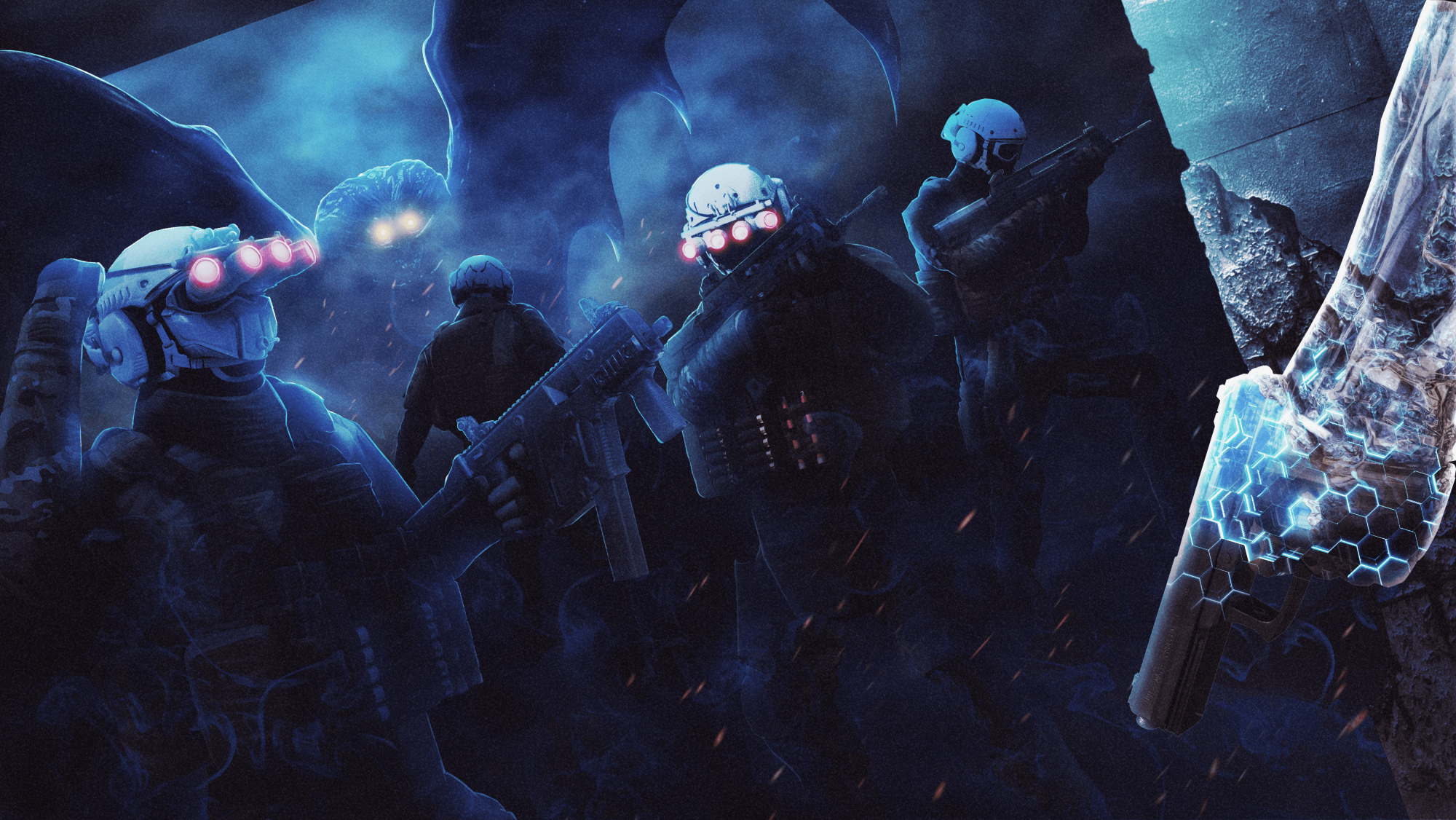
While the boomer shooter has been enjoying its day in the sun, Trepang Studios has been beavering away on an alternative brand of retro-revival FPS. By now we're used to seeing the '90s return, reminding us of a time when all that mattered was eviscerating demon hordes amid labyrinthine levels. But Trepang2 is very consciously and conspicuously a child of the post-Halo 2000s, when the single-player FPS became that bit more grounded and tactical. And because of that, while it’s certainly a throwback, it actually feels oddly fresh.
If you were around for the FPS wave of the mid-2000s, you’ll soon recognise that Trepang2 is especially indebted to Monolith Productions’ FEAR This isn’t exactly a subtle tribute – the developers might as well have tattooed the FEAR logo across the foreheads of their NPCs – but the more I played through the opening hours of the game, the more obvious the influence grew. If nothing else, you have to admire the dedication here to reproducing a tone and graphical style, along with the nuts and bolts of the action.
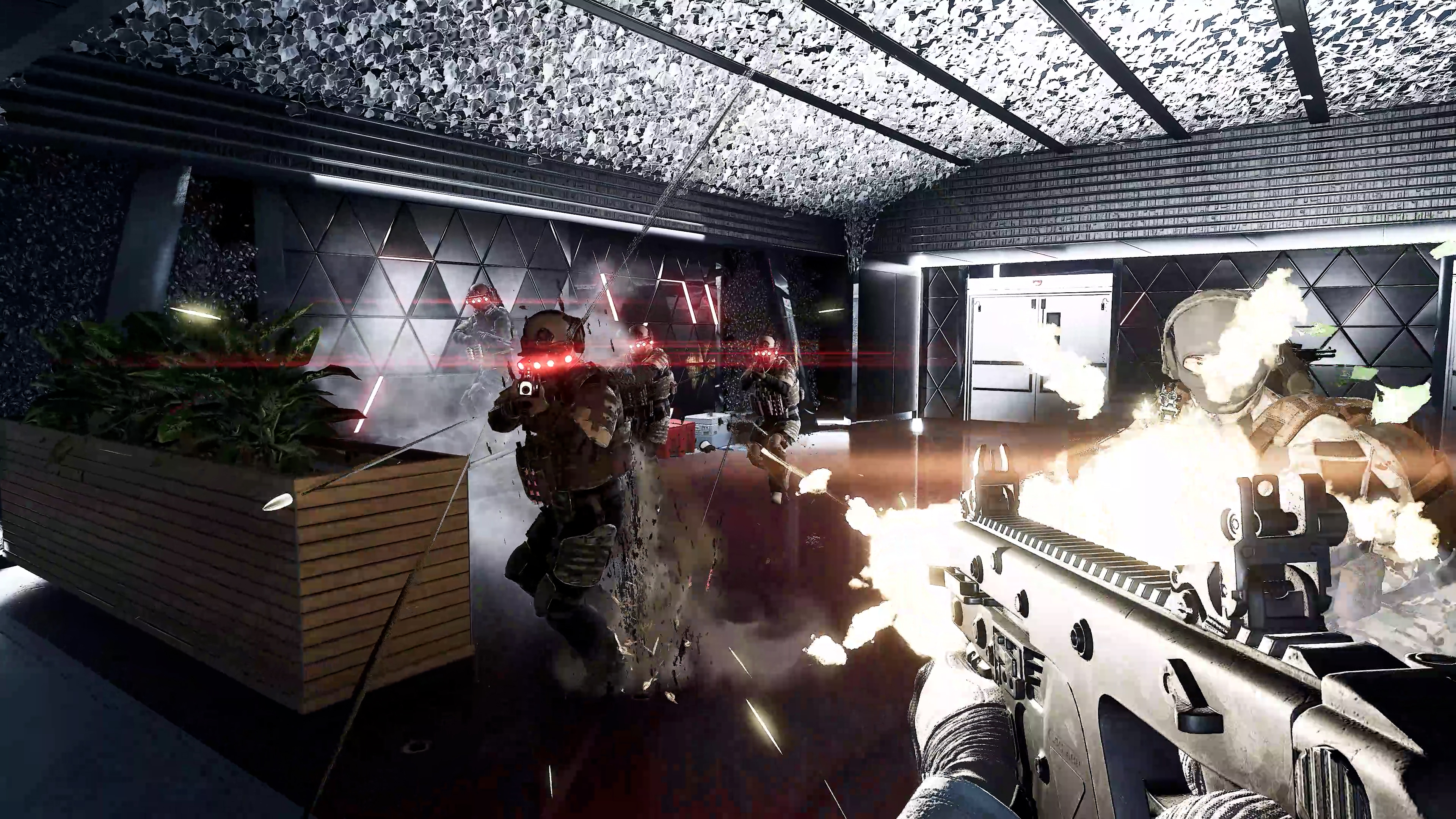
I fire my last pistol bullet to dispatch a foe up close, grab his gun before it hits the ground and shoot the guy behind him like I’m in a John Woo flick.
The most iconic feature in this homage, though, has to be those moments in combat when you trigger your ‘focus’ power, or what was oft referred to as ‘bullet time’ back when such things were in vogue. This recharging burst of slow motion replicates that in FEAR with unapologetic pleasure, as bullets swim towards and away from you leaving visible trace lines in the air, explosions send out rippling shockwaves, and the final words of your prey distort into gargled nonsense.
Trepang2 gives you enough slow motion—maybe 10 seconds from a full charge—to enable you to get creative with it, rather than simply line up a headshot or two. Your running slide, for example—a great way of scrambling from danger but also a means to sweep enemies off their feet—can propel you through a mob so you can turn balletically and blast them from behind. Sometimes focus provides a convenient spell to reload while you’re charging forth. On one occasion, I fire my last pistol bullet to dispatch a foe up close, grab his gun before it hits the ground and shoot the guy behind him like I’m in a John Woo flick.
If all that sounds like I’m forever running headfirst into enemy fire, well, yeah, it’s a fair cop. That’s because, played on its Normal difficulty, Trepang2 is something of a power fantasy. Not only can you survive a good few bullets and even the outskirts of a grenade blast, focusing and sliding help you get away with mistakes. Add to that a handy cloaking ability that makes you disappear for a few seconds, plus the ability to grab unaware or dazed enemies to use as human shields, and you can often afford to play fast and loose. Oh, and you can also dual-wield pretty much anything, including grenade launchers, which is as devastating as it sounds.
Weird science
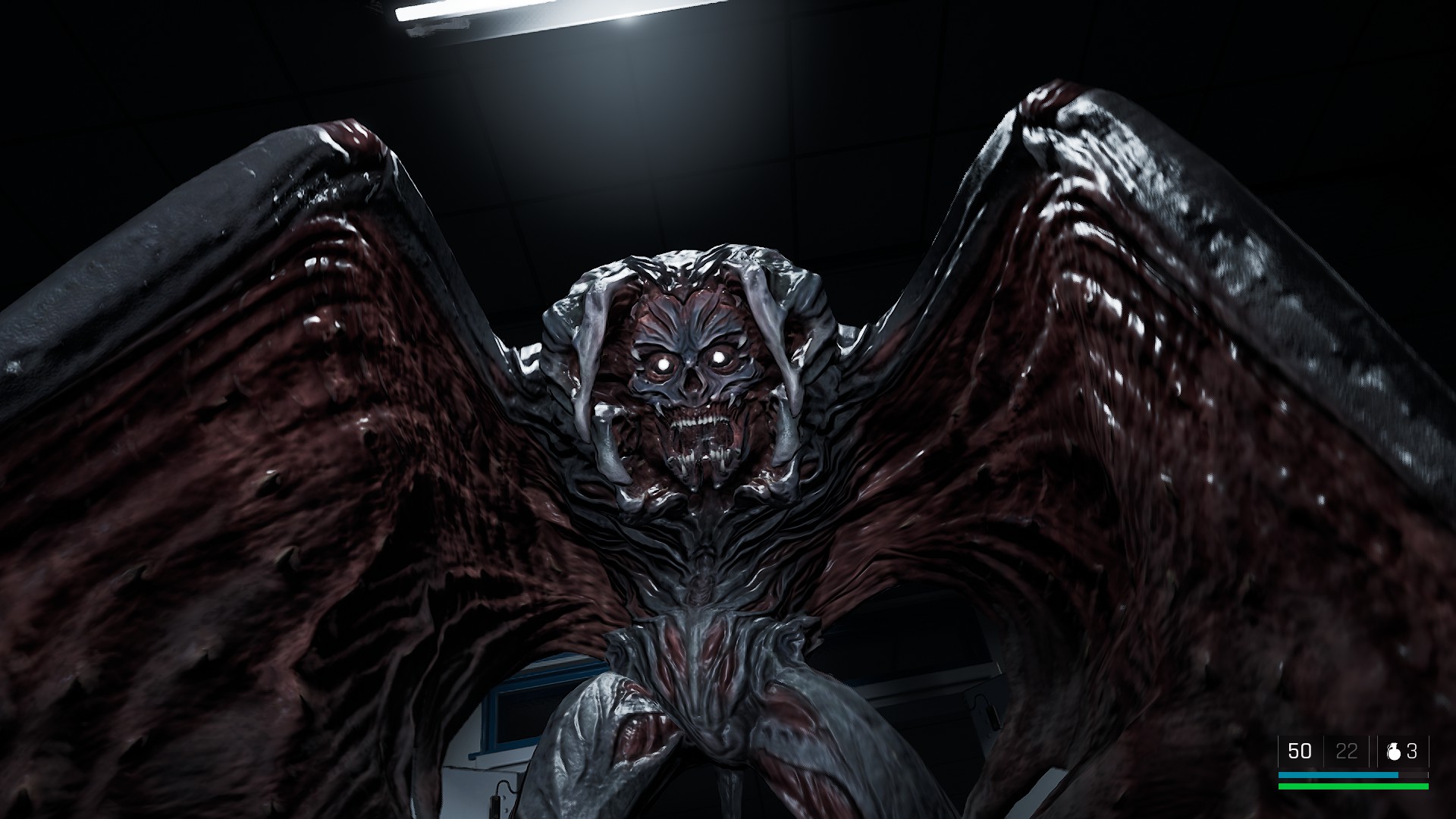
It's lively, exhilirating, and chaotic, as if all the knobs had been turned up to max.
As in FEAR, however, while most of the people trying to kill you are more fragile than you are, they aren’t dummies, and certainly once you cycle up a difficulty level or two (there are four above Normal to test your mettle), you have to be far more careful. They arrive in formation squads and the moment one spots you he yells out your position, resulting in a blanket of bullets that won’t stop until they need to reload. And as long as they have your position, they won’t charge out of cover into your line of sight, preferring instead to fan out in flanking manoeuvres or flush you out with flares and grenades. If you can use the game’s looping spaces to get away and sneak up behind one or two, all the better.
So far, so FEAR. But the difference here is just how much stuff Trepang2 can throw at you at once. Visually, this is neat retro-craft, evoking that mid-2000s feel with boxy scenery that ensures even the most intense combat, full of gibbed bodies and splintered wood, runs at an unfaltering clip. Battles get big and busy in moments, not to mention very loud, with rumbling music and flashbangs and chunky gunfire and clumping footsteps and panicked shouting. It’s lively, exhilarating, and chaotic, as if all the knobs had been turned up to max. In comparison, sequences between scraps feel empty, as if marking time before it all kicks off again. Indeed, the most honest expression of the game’s remit arguably comes from the combat simulator challenges you can take on back at base, which conjure up wave after wave of opponents with seconds to prepare in between.
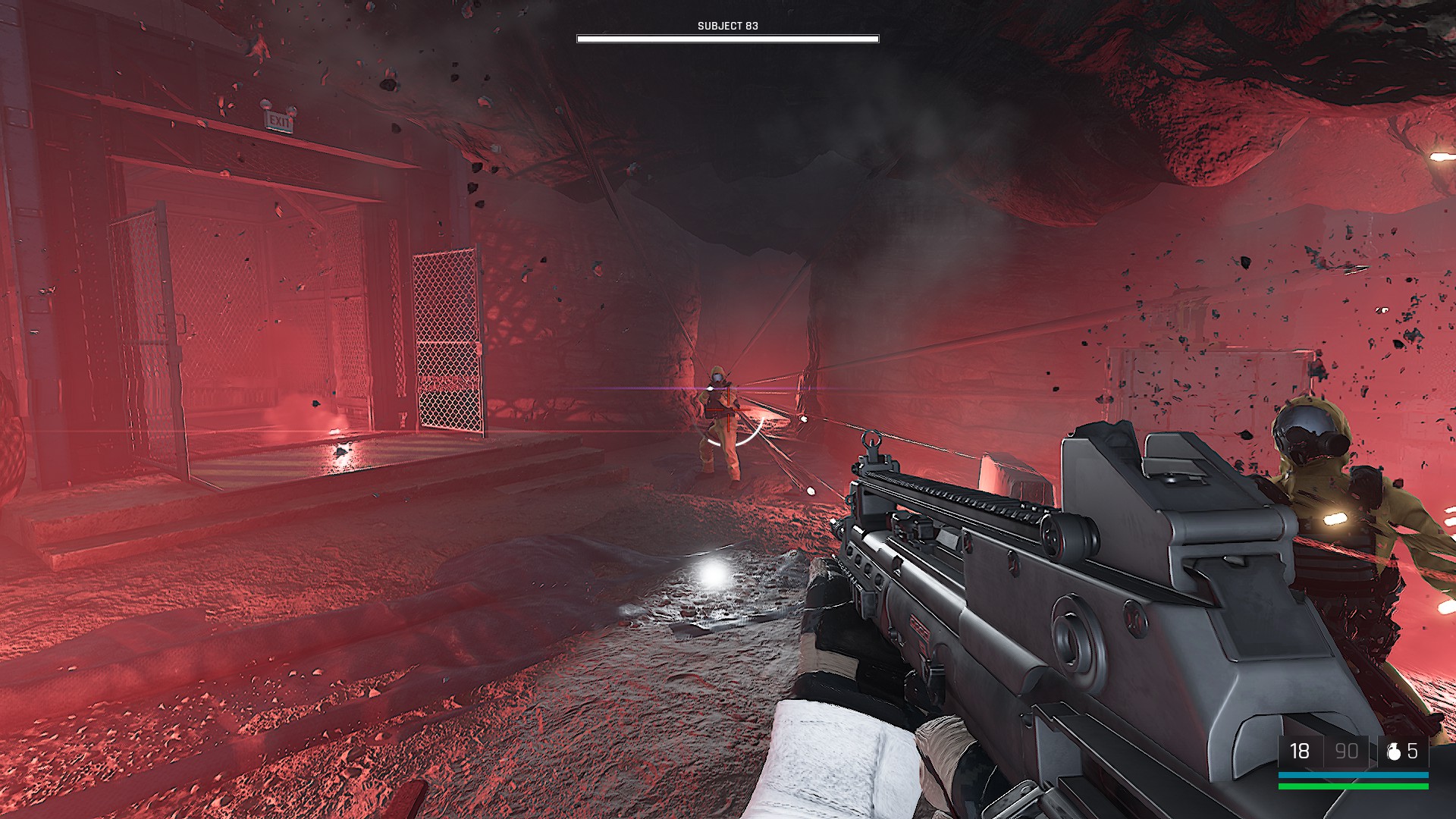
There is more to Trepang2 than taking down a private army, however, since like FEAR the whole endeavour is wrapped in a tale of terrible conspiracies. When you start the campaign, the first question you’ll likely ask is ‘Who the hell am I?’ since it begins with your mysterious super soldier, known only as ‘106’, being busted out of some equally mysterious prison compound owned by the nefarious Horizon corp. From there you wind up working for the people who set you free – also mysterious – to bring down Horizon and the sinister tech they’re trying to weaponise.
As you infiltrate Horizon’s facilities, then, you stumble down paranormal rabbit holes and unearth hints of bigger, creepier forces at work. Many of the game’s missions and side missions use these twists to toss in a unique kind of threat, from bullet resistant monsters to super-charged cult leaders. Investigating a new location has a bit of The X-Files about it, except whatever you find you’ll invariably end up machine-gunning it to death.
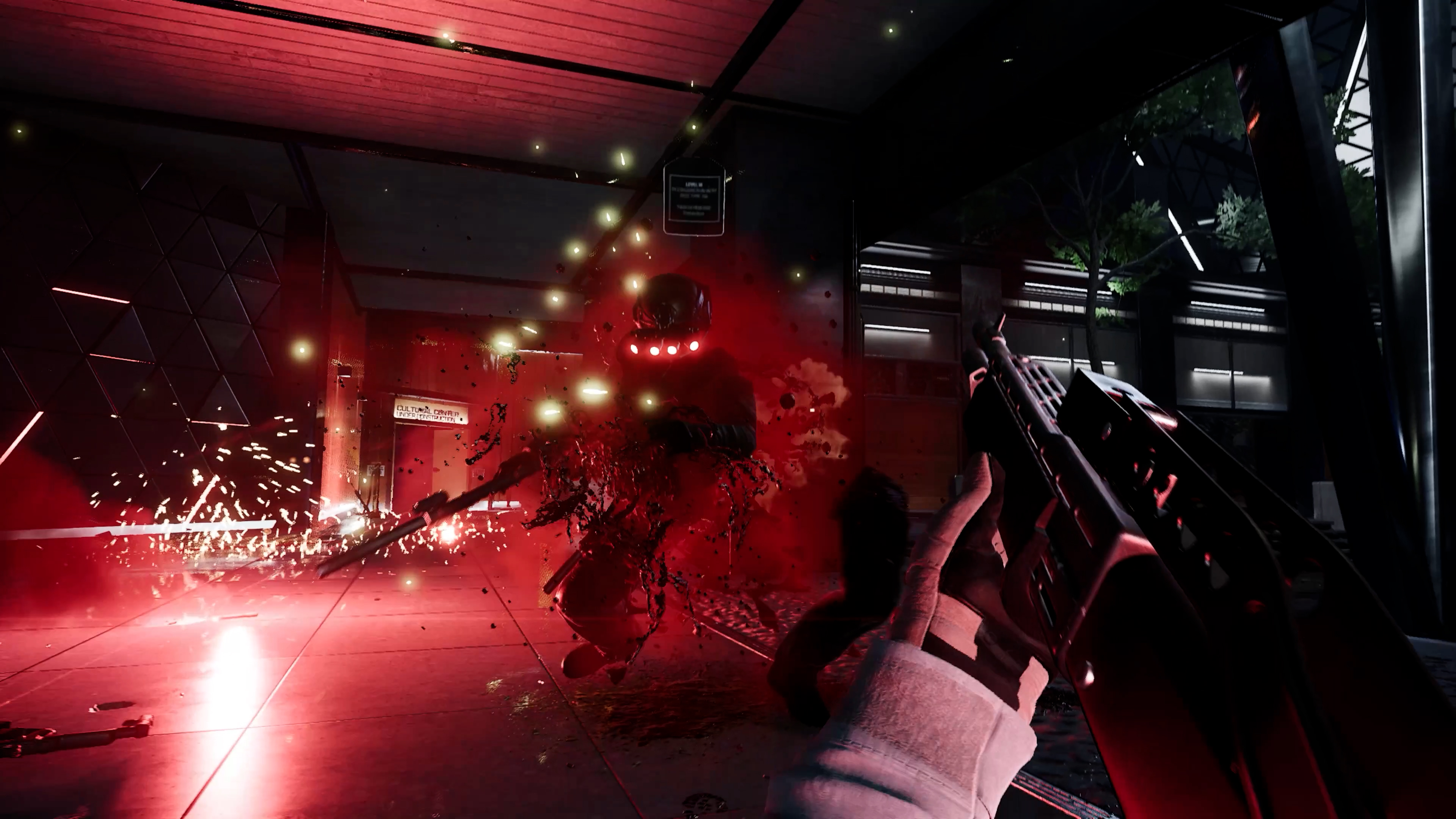
What’s missing in the early stages, though, despite the dark and serious tone, is any of FEAR’s spooky atmosphere. It’s possible that Trepang2 might dip more into psychological horror later on, but for the most part its otherworldly intrusions mostly seem geared towards setting up different scenarios for further gun fights. There is at least a decent buffet of backdrops to fight against, branching out from the bland grey corridors of the black site prison to some more upmarket corporate facilities and even a grand castle in York.
The most intriguing mystery at this stage then is whether Trepang2 has the variety to retain its freshness once the initial cacophony subsides. Will it be worth playing through all the training sim scenarios, for instance, once the missions are done, or is the challenge they offer all too one-note? Either way, there’s little doubt that the systems of violence are robust and beautiful, in as much as a simulated orgy of destruction can be, and that there’s a healthy balance here between modern crispness and the raw cackling entertainment of games like The Darkness, Max Payne, Crysis, Black, and FEAR itself. Even if that’s as far as it goes, then, it’s a pretty good return.







